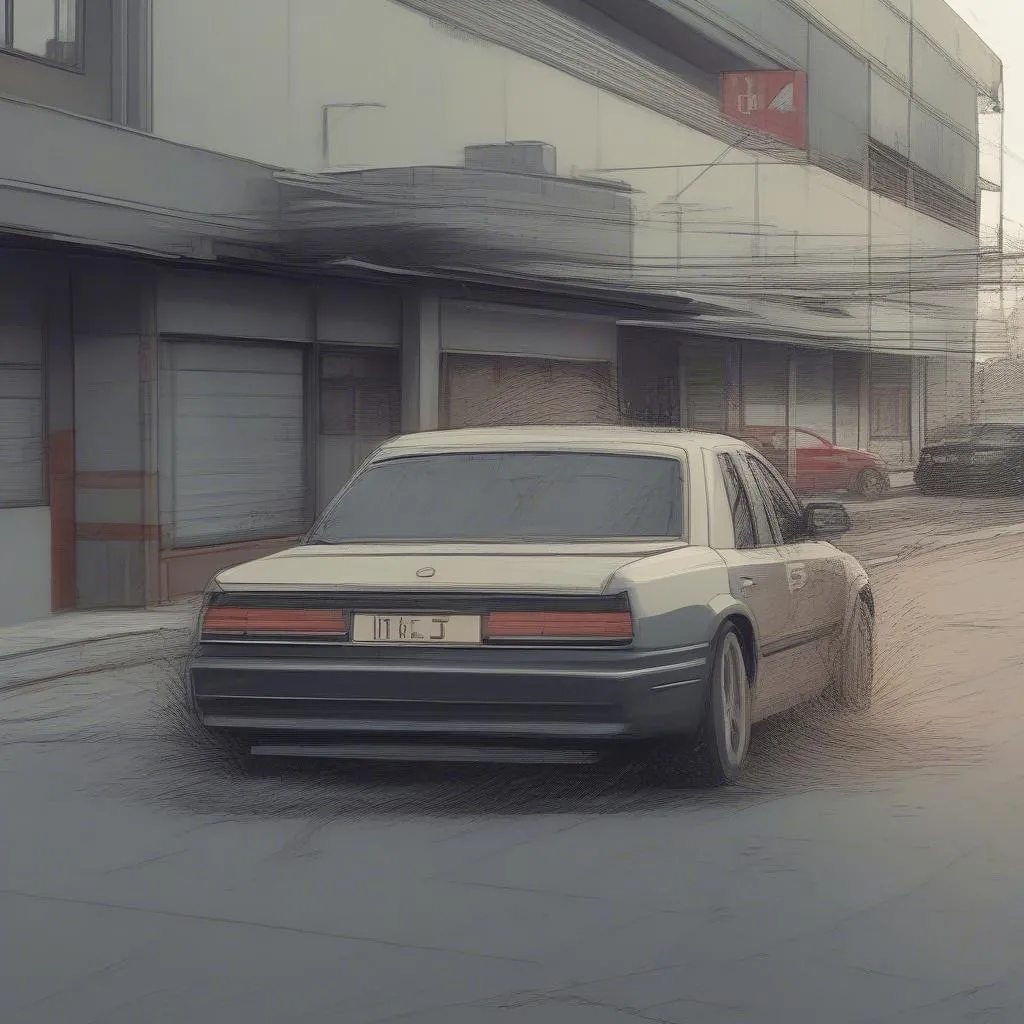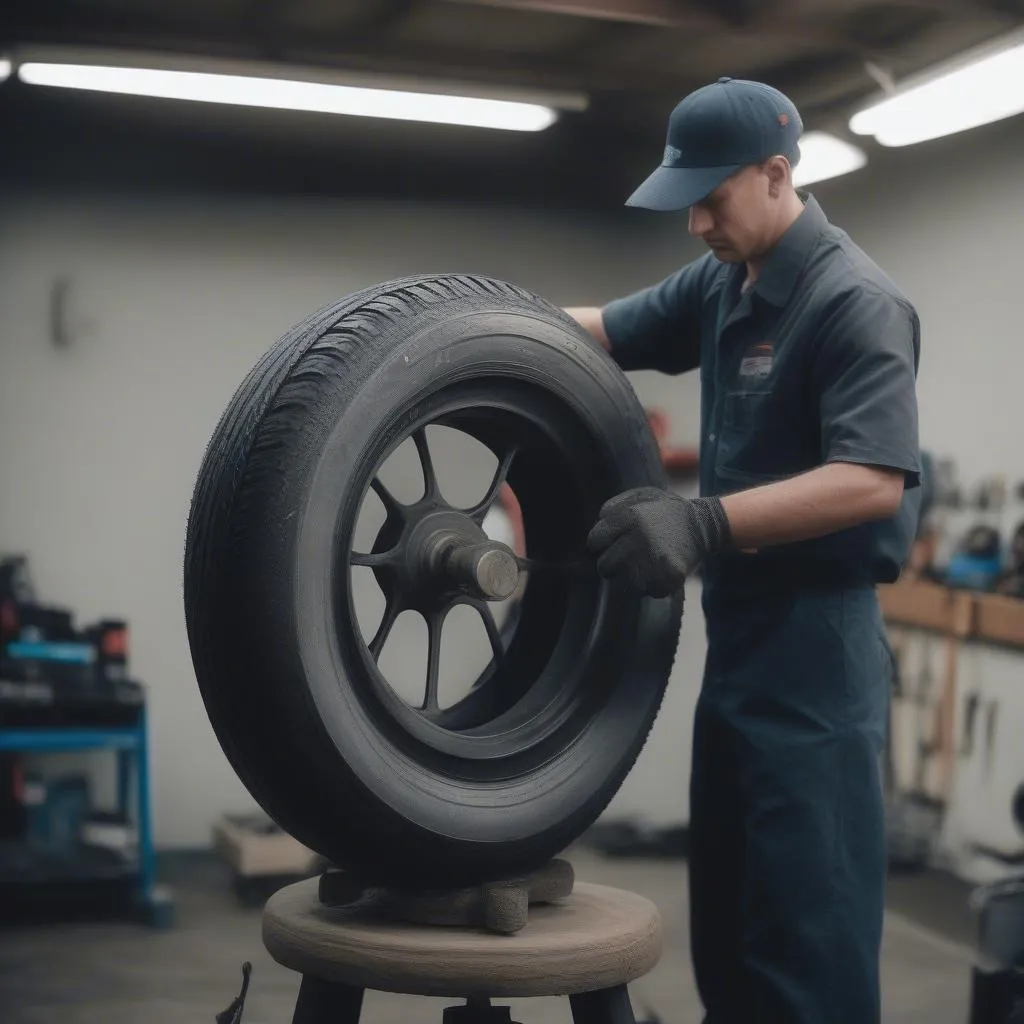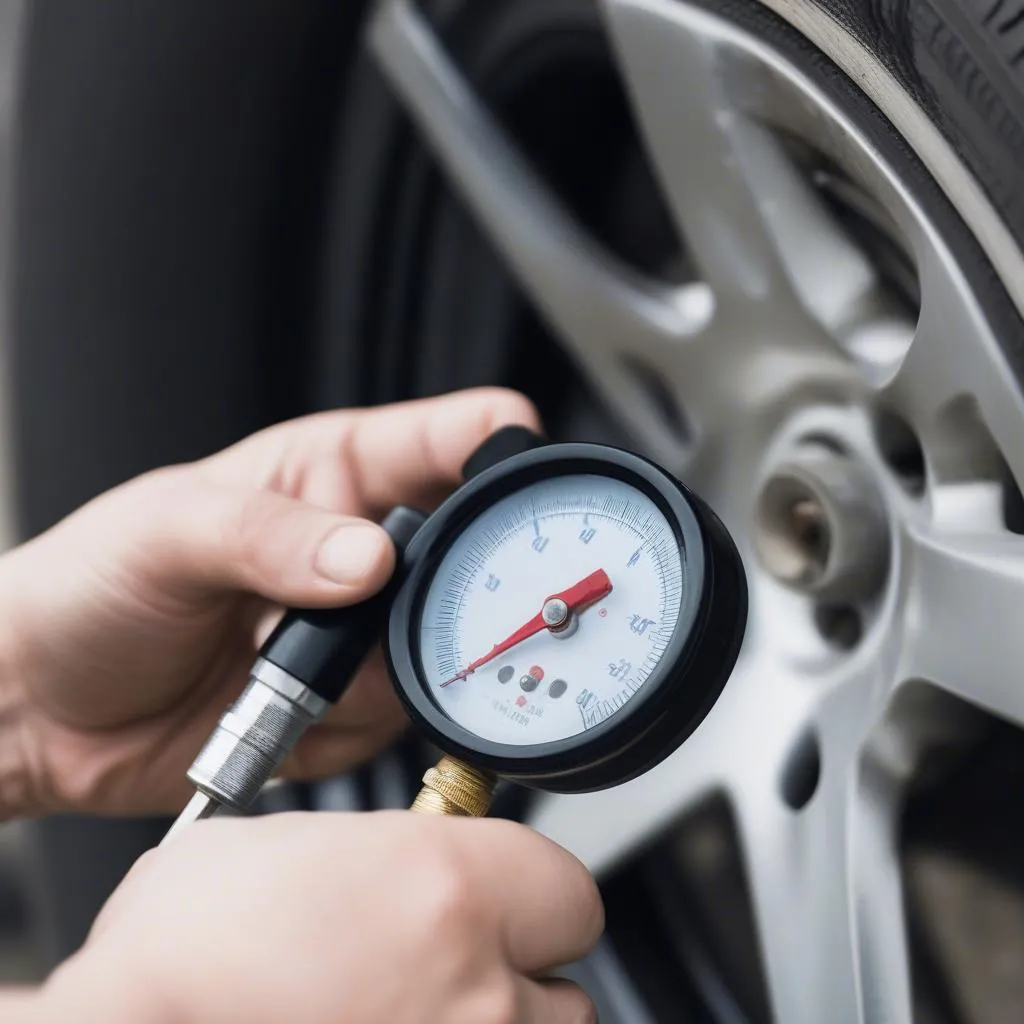Have you ever experienced that unsettling feeling of your car shaking after changing a tire? It’s a common issue, and it can be quite alarming. Imagine this: You’re driving down a busy highway, feeling confident in your trusty car, when suddenly the dreaded “thump, thump, thump” starts. You pull over, check the tire pressure, and discover a flat tire. You grab your spare tire and jack, ready to tackle the situation like a pro. You change the tire, feeling a sense of accomplishment, but then, the unexpected happens—your car starts shaking!
Let’s dive into the world of car shaking after a tire change, explore the reasons behind it, and find solutions to get your car back on the road smoothly.
Why Does My Car Shake After Changing a Tire?
The shaking sensation you feel after changing a tire can be caused by a few different factors:
-
Wheel Balance Issues: Changing a tire can disrupt the balance of your wheels. When a tire is out of balance, it can cause vibrations that travel through the vehicle, resulting in a shaking sensation. Imagine it like a spinning wheel with weights unevenly distributed—it’s bound to wobble!
-
Improper Tire Pressure: Incorrect tire pressure can contribute to shaking. A tire with too much air can create a bounce effect, leading to the shaking sensation. On the other hand, a tire with too little air can cause uneven wear and tear, which can also lead to shaking.
-
Loose Lug Nuts: This is a serious concern as loose lug nuts can lead to wheel separation while driving. You can avoid this by always tightening the lug nuts properly after changing a tire. Remember, torque matters!
-
Tire Wear and Tear: Even if your tire is brand new, it might have some uneven wear and tear from the previous tire, contributing to shaking.
-
Damaged Wheel: If your wheel itself is damaged, it can cause vibrations and shaking. Imagine a dent or crack in your car’s wheel—it’s like trying to balance a bowl with a hole in it!
How To Fix Your Car Shaking After a Tire Change
Now that you understand the potential culprits, let’s get your car shaking fixed.
-
Get Your Wheels Balanced: The most common solution for a shaking car after a tire change is to have your wheels balanced. A professional mechanic will use specialized equipment to ensure each wheel is balanced correctly. It’s like giving your car wheels a mini spa treatment!
-
Check Tire Pressure: Ensure your tires are inflated to the proper pressure as recommended by your car’s manufacturer. You can find this information in your owner’s manual or on the driver’s side doorjamb.
-
Tighten Lug Nuts: After changing a tire, it’s crucial to tighten the lug nuts properly using a torque wrench. This ensures that the nuts are tight enough to hold the wheel securely but not so tight that they damage the wheel.
-
Inspect Tires and Wheels: If you’ve ruled out the other factors, it’s time to take a closer look at your tires and wheels. Look for any signs of damage, such as dents, cracks, or uneven wear.
-
Consult a Professional: If you’re unsure about what’s causing the shaking or if you’re not comfortable performing repairs yourself, consult a qualified mechanic. It’s always best to be safe and let an expert diagnose the problem.
Other Related Questions:
-
Why does my car shake when I turn it off? This is a common issue that could be related to a variety of factors, including engine mounts, suspension components, or even a clogged fuel filter. Click here to learn more.
-
How to fix engine light? The engine light is your car’s way of letting you know there’s a problem. It’s crucial to address the problem as soon as possible. Click here to learn more.
-
Can you drive with a bad wheel speed sensor? A wheel speed sensor helps your car’s anti-lock braking system and traction control function properly. Driving with a bad sensor can be dangerous. Click here to learn more.
-
My vehicle shakes at high speed. Shaking at high speed can be caused by several factors, including worn suspension components, tire imbalance, or even a warped rotor. Click here to learn more.
What if I am Still Experiencing Shaking?
If you’ve checked all of these possible causes and you’re still experiencing car shaking after a tire change, it’s best to consult a mechanic. They can use their expertise and diagnostic tools to pinpoint the exact problem and provide a solution.
Let’s Recap!
Changing a tire can be a simple process, but it’s essential to do it correctly to avoid problems like shaking. Make sure your wheels are balanced, tire pressure is correct, lug nuts are tight, and your tires and wheels are in good condition.
If you’re still experiencing shaking, don’t hesitate to seek professional help.
 car shaking after tire change
car shaking after tire change
 tire balancing
tire balancing
 tire pressure gauge
tire pressure gauge
Need help with your car? Our team of experts is available 24/7 to assist you with any automotive issues you may have. Connect with us on WhatsApp at +84767531508 for immediate support.